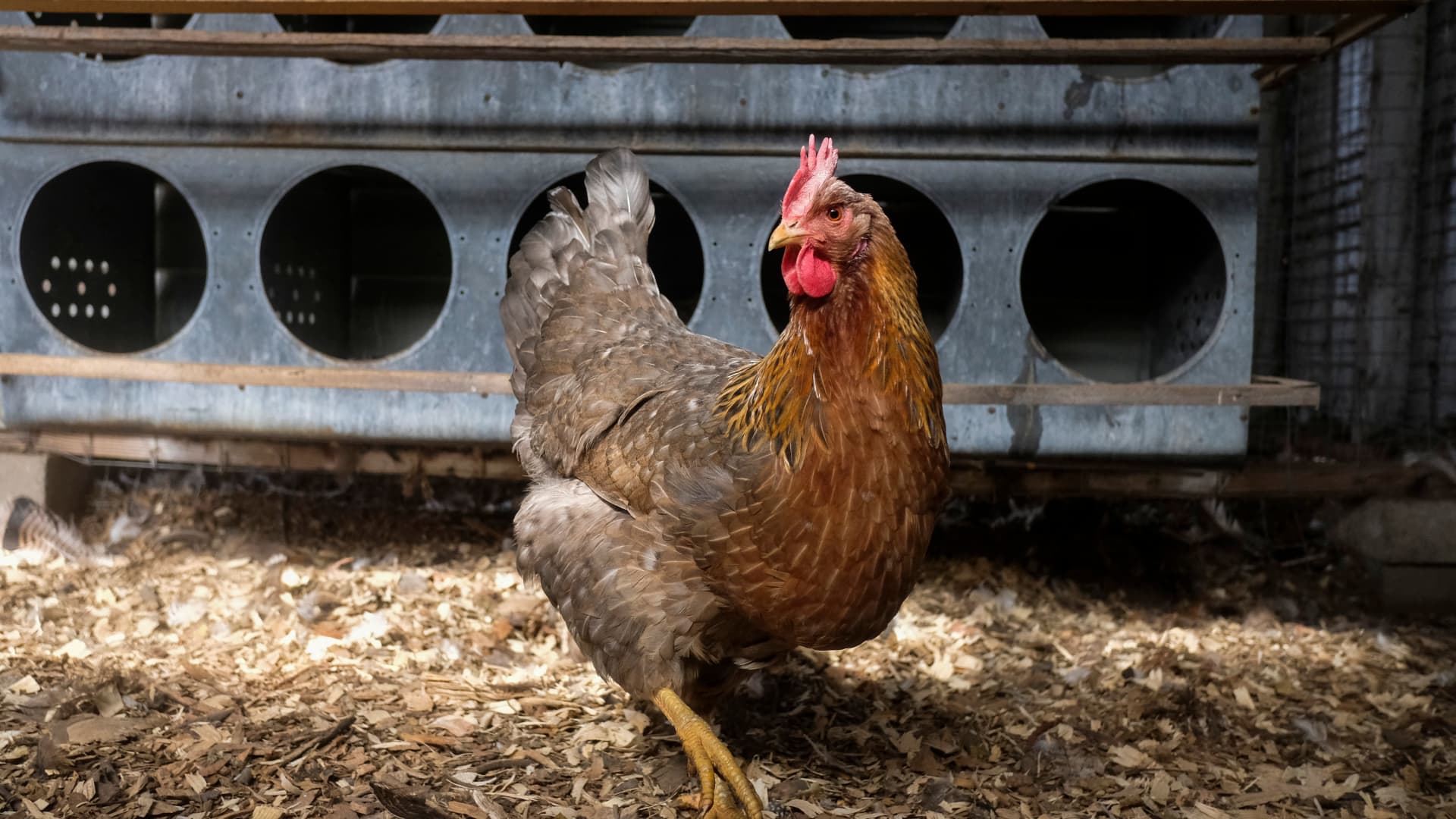
- Egg prices rose 8.9% from November to December, according to the consumer price index. The figure is adjusted for seasonal patterns.
- Highly pathogenic avian influenza, also known as bird flu, reemerged in U.S. commercial table-egg farms at the end of 2023 after a hiatus.
- Bird flu caused an egg shortage in 2022-23 that led prices to soar to record highs, economists said.
Egg prices are on the rise again, after having fallen from record highs in 2023.
Average egg prices jumped 8.9% from November to December, following a 2.2% rise the prior month, according to the consumer price index. The U.S. Department of Labor adjusts these numbers to account for seasonal patterns.
December's egg price move was the largest relative to other items in the CPI basket, which measures prices of everything from concert tickets to furniture, electricity and prescription drugs. For comparison, the overall CPI basket rose 0.3% during the month.
Get top local stories in San Diego delivered to you every morning. >Sign up for NBC San Diego's News Headlines newsletter.
Bird flu 'pops back up again'

A dozen grade A, large eggs cost $2.51 in December, still well below last year's peak at $4.82 in January 2023. At the time of that early 2023 high, prices had more than doubled in less than a year.
Money Report
That increase was largely due to a historic outbreak of highly pathogenic avian influenza, also known as bird flu, according to agricultural economists.
More from Personal Finance:
Deflation: Here's where prices fell in December 2023, in one chart
Why disinflation is 'more ideal' than deflation
Here's the inflation breakdown for December 2023 — in one chart
The virus is extremely contagious and lethal among birds, including egg-laying hens. The outbreak killed tens of millions of birds, contributing to an egg shortage that coincided with peak consumer demand heading into the winter holiday season, economists said.
After having subsided for most of 2023, bird flu reappeared among commercial U.S. table-egg flocks in early November and has since been detected in several states, according to U.S. Department of Agriculture data.
"Just when it seems that perhaps it's behind us, it pops back up again … after a roughly 10-month hiatus," said Karyn Rispoli, head of egg market coverage at Urner Barry, a market research firm.
More than 14 million egg-laying chickens died in November and December due to avian flu, according to USDA data. There are more than 368 million egg-laying chickens in the U.S., the USDA said.
That loss has caused wholesale prices to increase, though "not nearly to the same degree" as at the end of 2022 into 2023, Rispoli said.
At the time, a farm group alleged that price gouging and profiteering among major egg suppliers also drove high prices in 2022, though some economists were skeptical that factor was at play.
Strong consumer demand may also be a factor
Some of the increase consumers saw in December was also likely attributable to the typical seasonal patterns of demand, which tends to spike around the winter holidays and therefore increases shelf prices, said Brian Moscogiuri, global trade strategist at Eggs Unlimited, an egg supplier.
Prices have increased higher than most expected, however, though "nowhere near the shock markets" in 2022, Moscogiuri said.
The extent to which bird flu may continue to spread and affect egg supply — and therefore prices — going forward is unclear, economists said.
"It's hard to predict when a virus is going to present itself and how impactful that could and will be," said Amy Smith, vice president at Advanced Economic Solutions.
Don't miss these stories from CNBC PRO:
- Tesla versus BYD: Analysts prefer one of them — giving it up to over 70% upside
- Goldman says small caps to beat large caps this year. 10 cheap smaller stocks to buy
- DoubleLine's Gundlach sees 'very painful' economic downturn, S&P 500 may be forming 'double top'
- 'One of the best valuations for AI': Buy the dip in this Big Tech stock, strategist says






